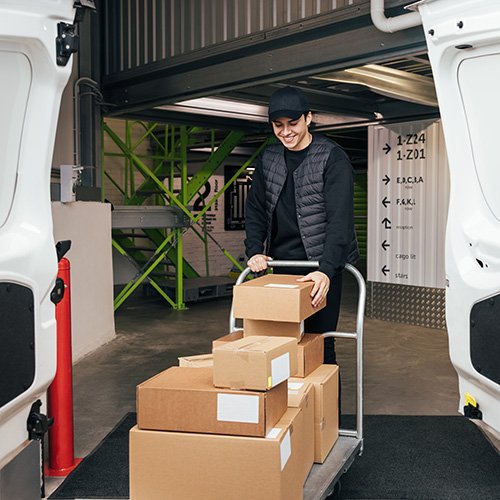In the logistics industry, efficiency and precision are paramount. The ability to move goods quickly and accurately can make the difference between a profitable operation and one that struggles to meet deadlines and customer expectations. One way to enhance efficiency and streamline logistics operations is by using custom carts and baskets. These tailored solutions offer numerous benefits, from improving workflow to reducing damage to goods. In this article, we will explore how custom carts and baskets can revolutionize logistics operations.
The Importance of Efficient Logistics Operations
In today’s competitive market, logistics companies are under constant pressure to deliver goods faster and more reliably. Delays, errors, and damaged goods can lead to dissatisfied customers and lost revenue. Efficient logistics operations are essential to maintaining customer satisfaction and profitability. Custom carts and baskets are tools that can significantly contribute to this efficiency.
What Are Custom Carts and Baskets?
Custom carts and baskets are material handling solutions designed to meet the specific needs of a logistics operation. Unlike standard carts and baskets, which are generic and may not fit the exact requirements of a company’s processes, custom solutions are tailored to handle specific types of goods, optimize space, and improve workflow.
Benefits of Custom Carts and Baskets
Improved Workflow
One of the primary benefits of custom carts and baskets is the improvement in workflow. By designing these tools to fit specific tasks, companies can streamline their processes and reduce the time and effort required to move goods. For example, a custom cart designed to hold specific parts or products can eliminate the need for multiple trips, reducing labor costs and increasing productivity.
Enhanced Safety
Custom carts and baskets can also enhance safety within logistics operations. By designing these tools to fit the exact dimensions and weight of the goods being transported, companies can reduce the risk of accidents and injuries. Properly designed carts and baskets can prevent items from falling or shifting during transit, which can protect both the goods and the employees handling them.
Reduced Damage to Goods
Damage to goods during transit is a significant concern for logistics companies. Custom carts and baskets can help mitigate this risk by providing better support and protection for items. For instance, custom foam inserts or dividers can be used to prevent items from colliding or moving around during transport, reducing the likelihood of damage.
Space Optimization
Efficient use of space is crucial in logistics operations. Custom carts and baskets can be designed to maximize space utilization, both in the warehouse and during transit. By fitting perfectly within storage and transport systems, these custom solutions can help companies make the most of their available space, reducing the need for additional storage or transportation costs.
Applications of Custom Carts and Baskets
Warehousing
In warehousing, custom carts and baskets can be used to streamline picking, packing, and shipping processes. By designing these tools to fit the specific dimensions of shelving units and storage areas, companies can improve the efficiency of their warehouse operations. Custom solutions can also be designed to handle specific types of goods, such as fragile items or hazardous materials, ensuring that they are transported safely and efficiently.
Transportation
During transportation, custom carts and baskets can help ensure that goods are moved efficiently and safely. For example, custom-designed carts can be used to load and unload trucks quickly and efficiently, reducing the time spent at loading docks and minimizing the risk of damage to goods. Custom baskets can also be designed to fit securely within transport vehicles, preventing items from shifting during transit.
Manufacturing
In manufacturing, custom carts and baskets can be used to streamline production processes. By designing these tools to hold specific parts or components, companies can reduce the time and effort required to move items between different stages of production. Custom solutions can also help ensure that parts are handled safely and efficiently, reducing the risk of damage and improving overall productivity.
Implementing Custom Carts and Baskets
Assessing Needs
The first step in implementing custom carts and baskets is to assess the specific needs of your logistics operation. Consider the types of goods you handle, the layout of your warehouse or transportation system, and any specific challenges you face in your processes. This assessment will help you identify the features and specifications needed in your custom solutions.
Design and Prototyping
Once you have assessed your needs, the next step is to design and prototype your custom carts and baskets. Work with a provider that specializes in custom material handling solutions to develop designs that meet your specific requirements. Prototyping allows you to test these designs in your actual operations, ensuring that they work as intended before investing in full-scale production.
Implementation and Training
After finalizing the designs, implement the custom carts and baskets in your logistics operations. Provide training to your employees on how to use these new tools effectively and safely. Proper training ensures that your team can make the most of the custom solutions, maximizing the benefits and improving overall efficiency.
Contact Salco Today
Streamlining logistics operations is essential for maintaining competitiveness and profitability in today’s fast-paced market. Custom carts and baskets offer a powerful solution for improving workflow, enhancing safety, reducing damage to goods, and optimizing space. By assessing your needs, designing tailored solutions, and providing proper training, you can transform your logistics operations and achieve greater efficiency and productivity. Invest in custom material handling solutions today and experience the difference they can make in your logistics processes.



